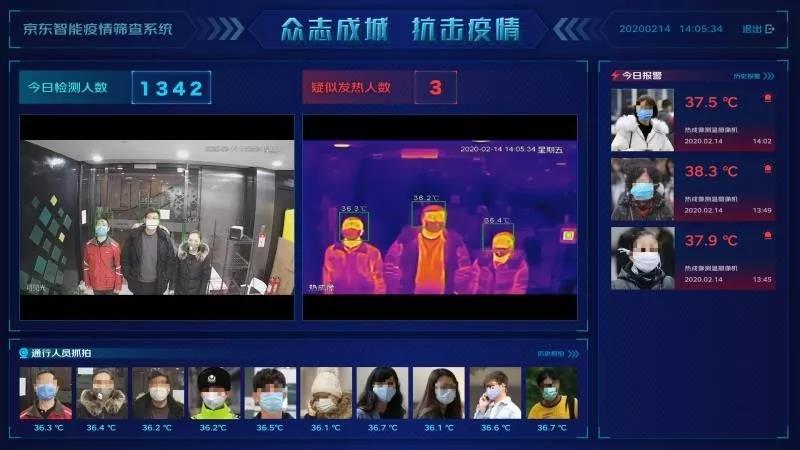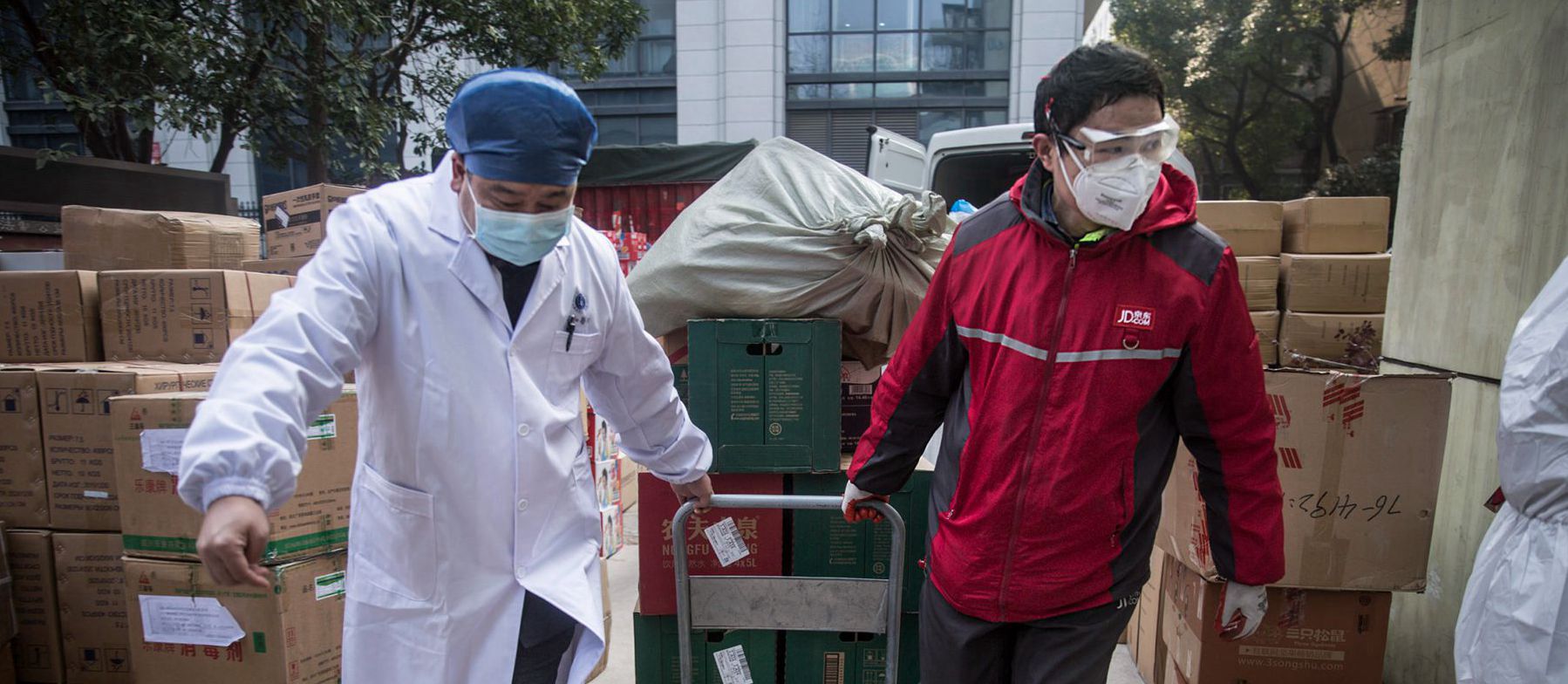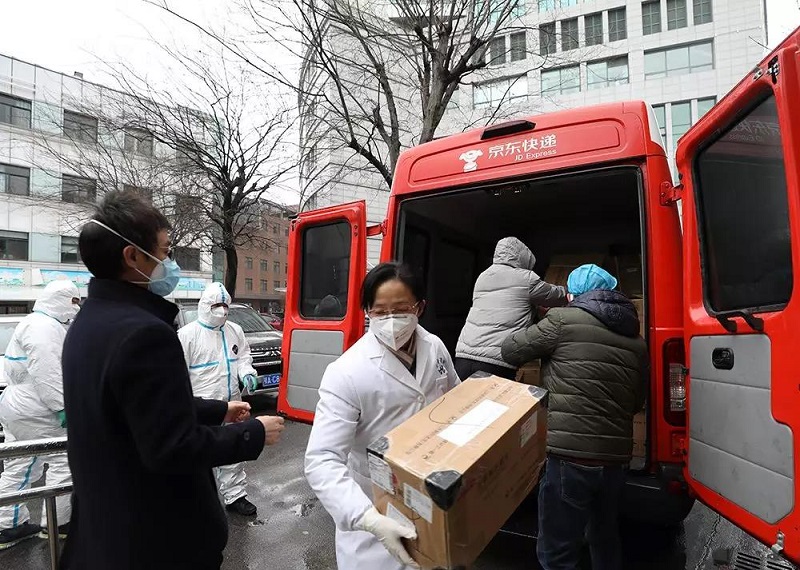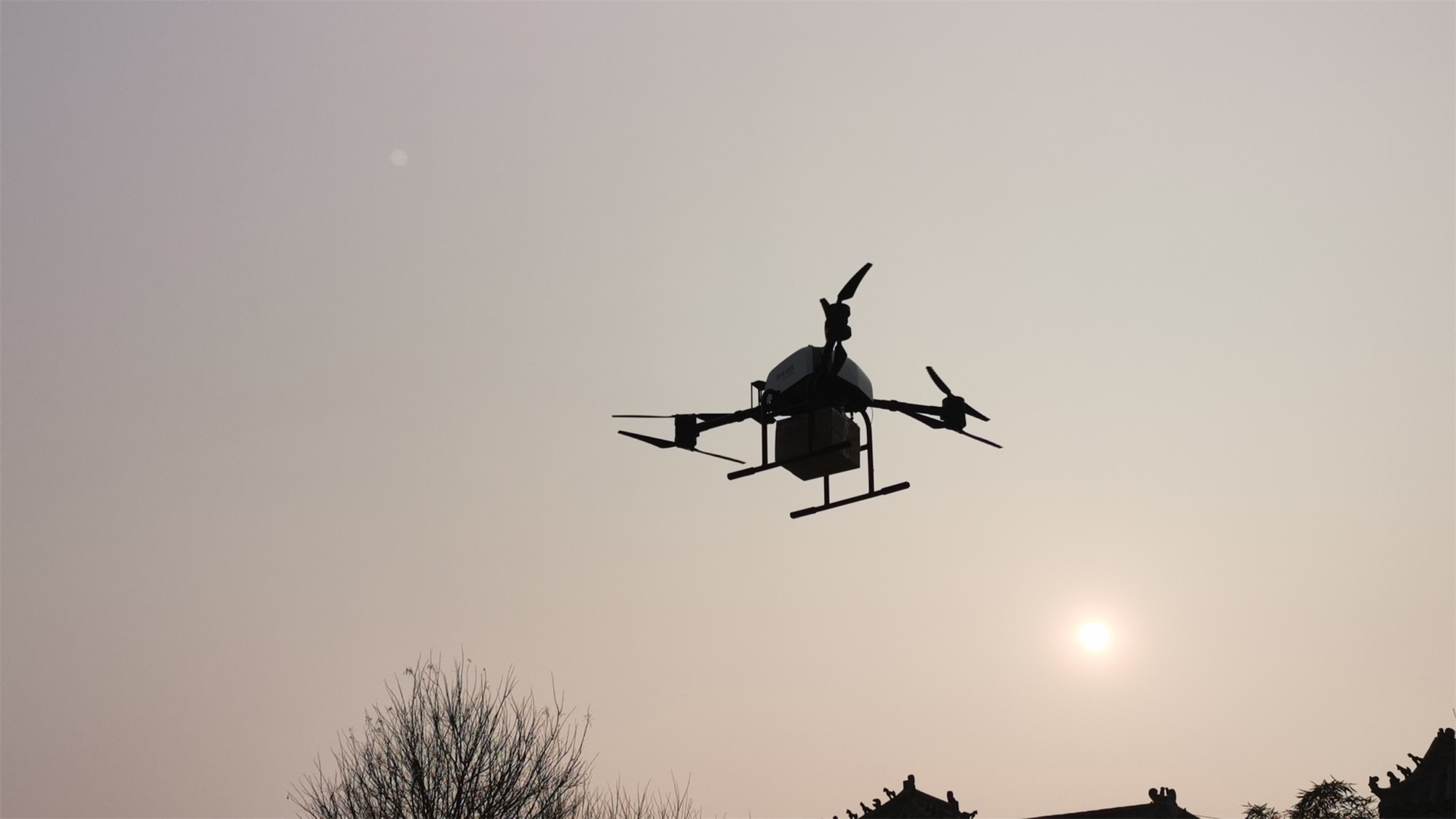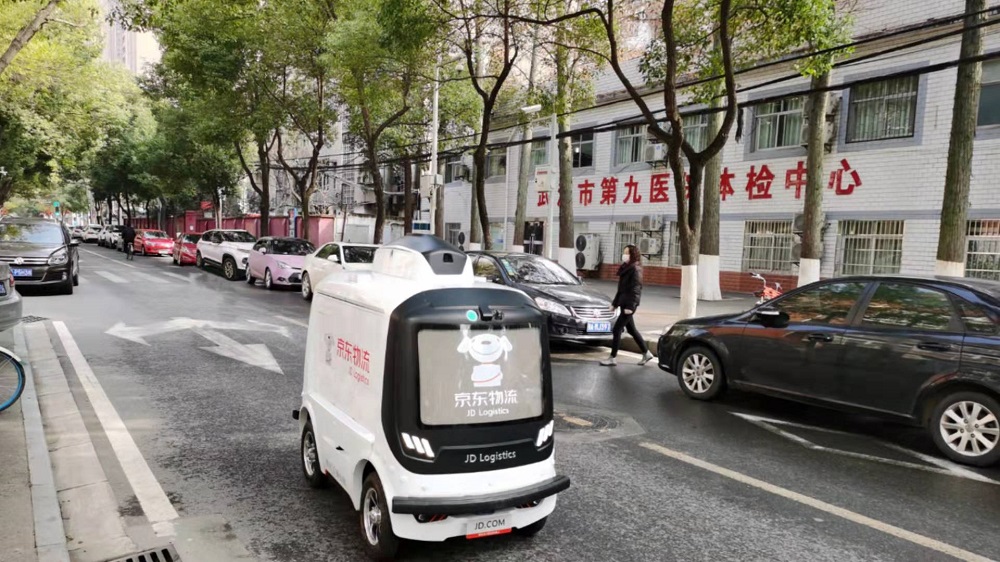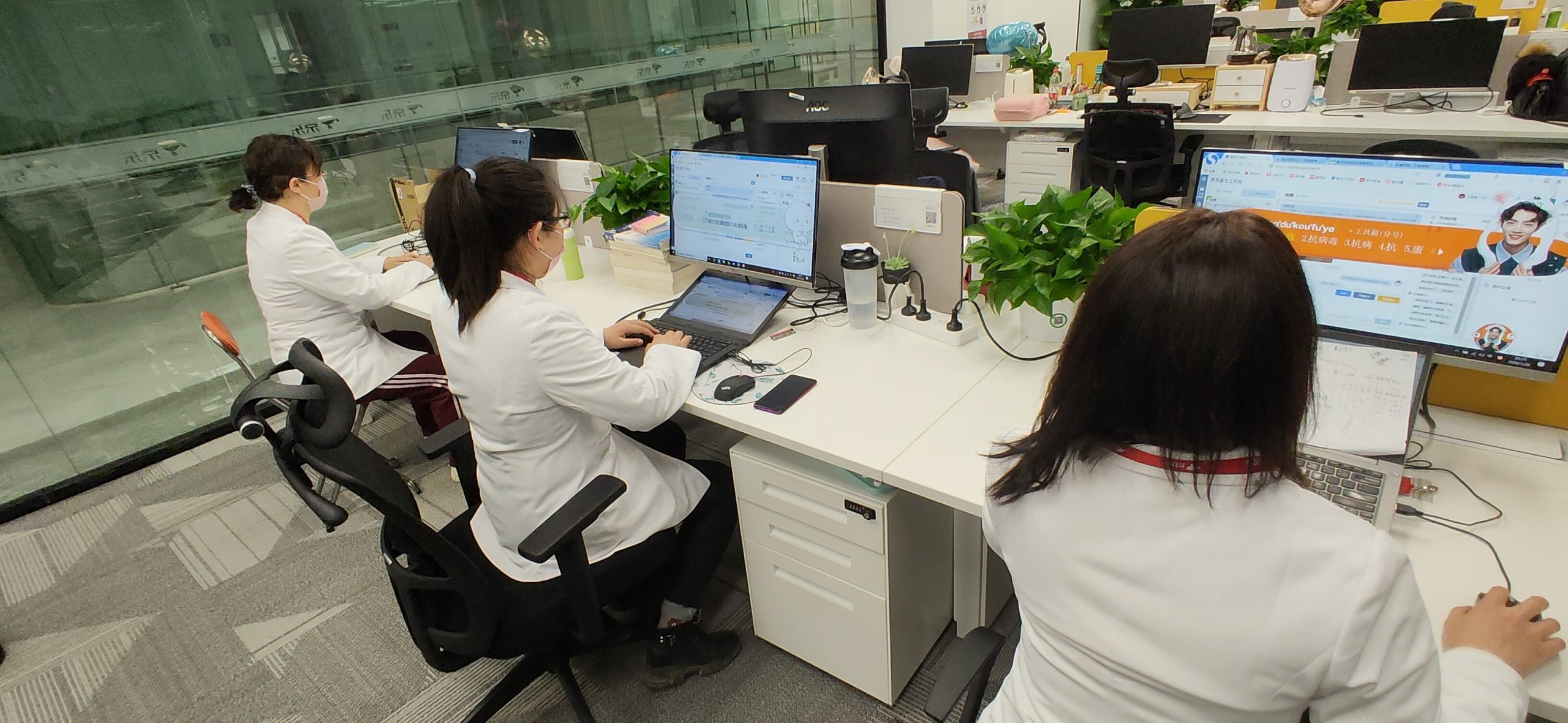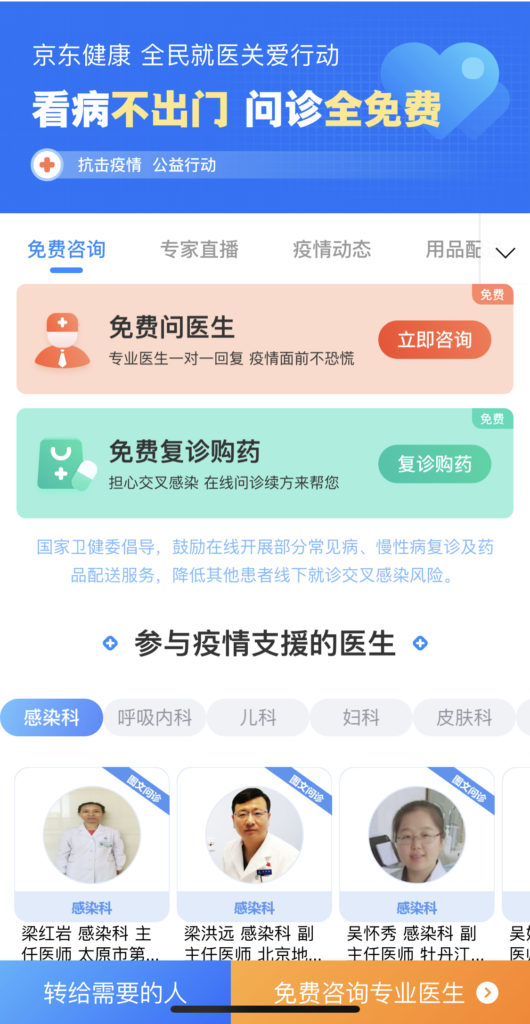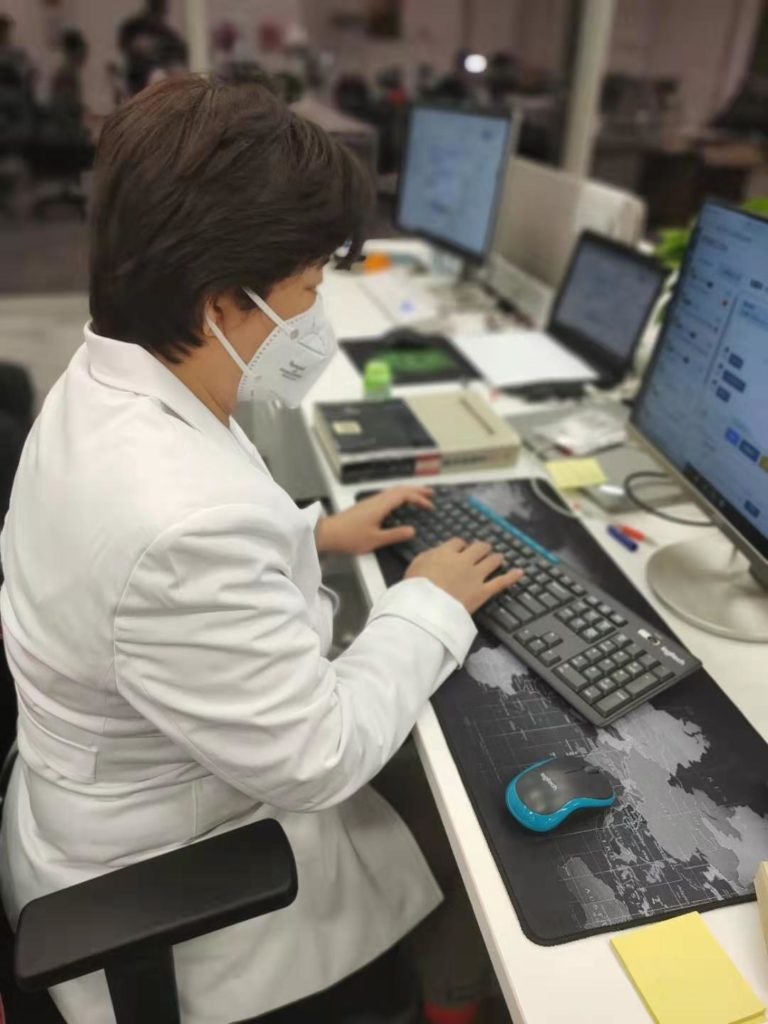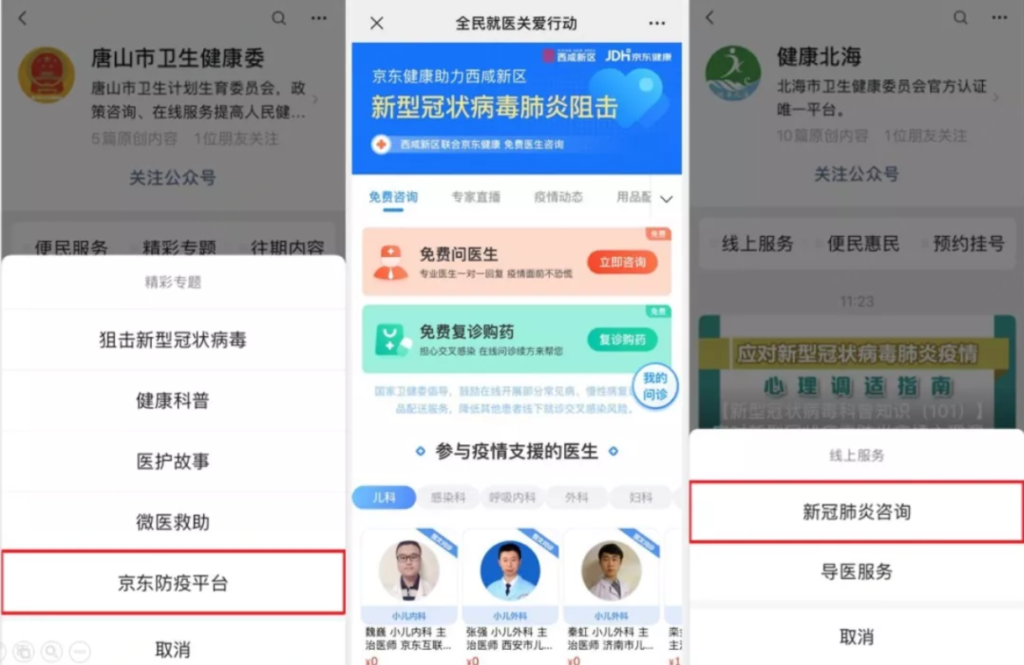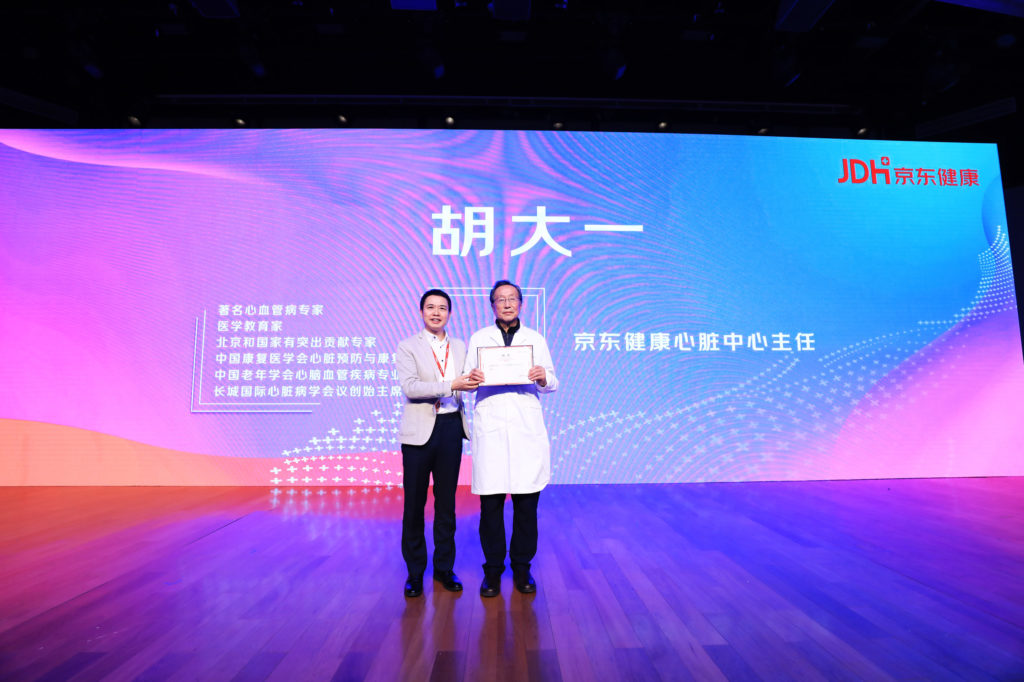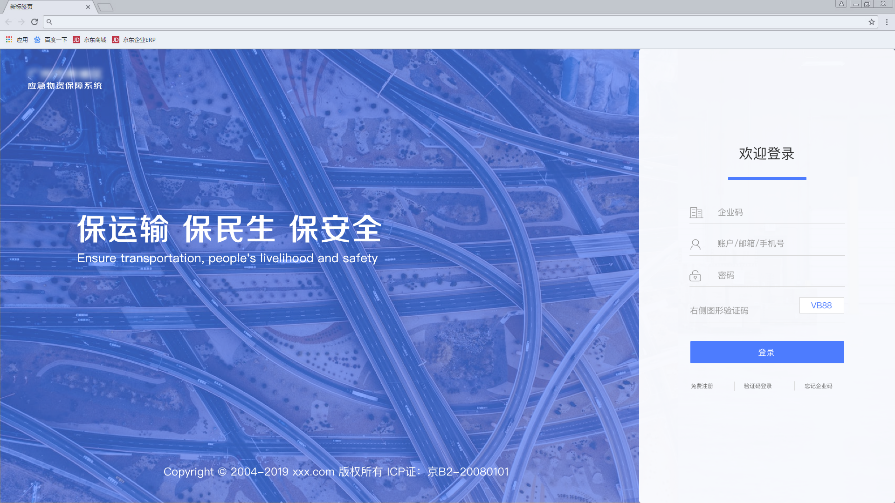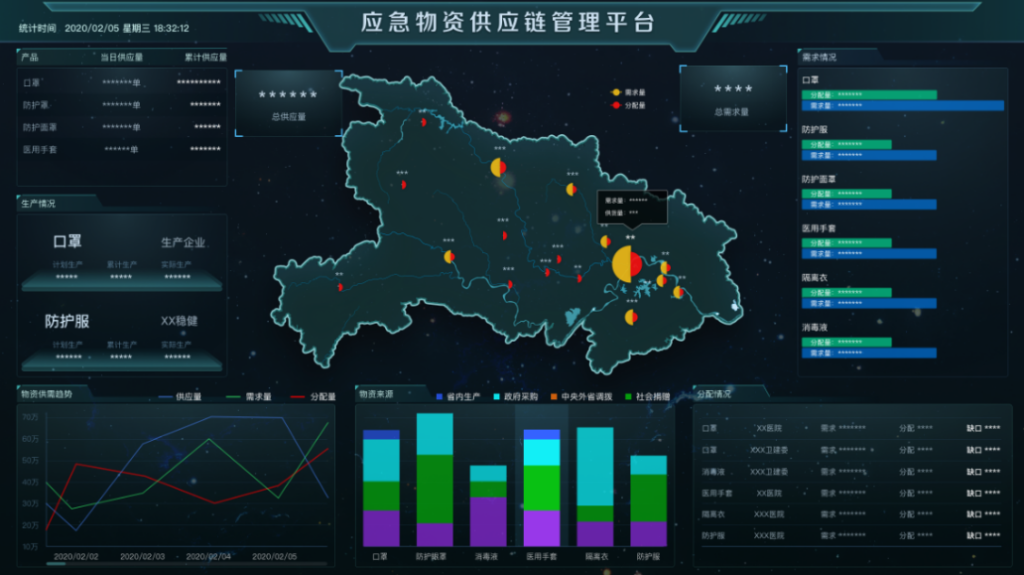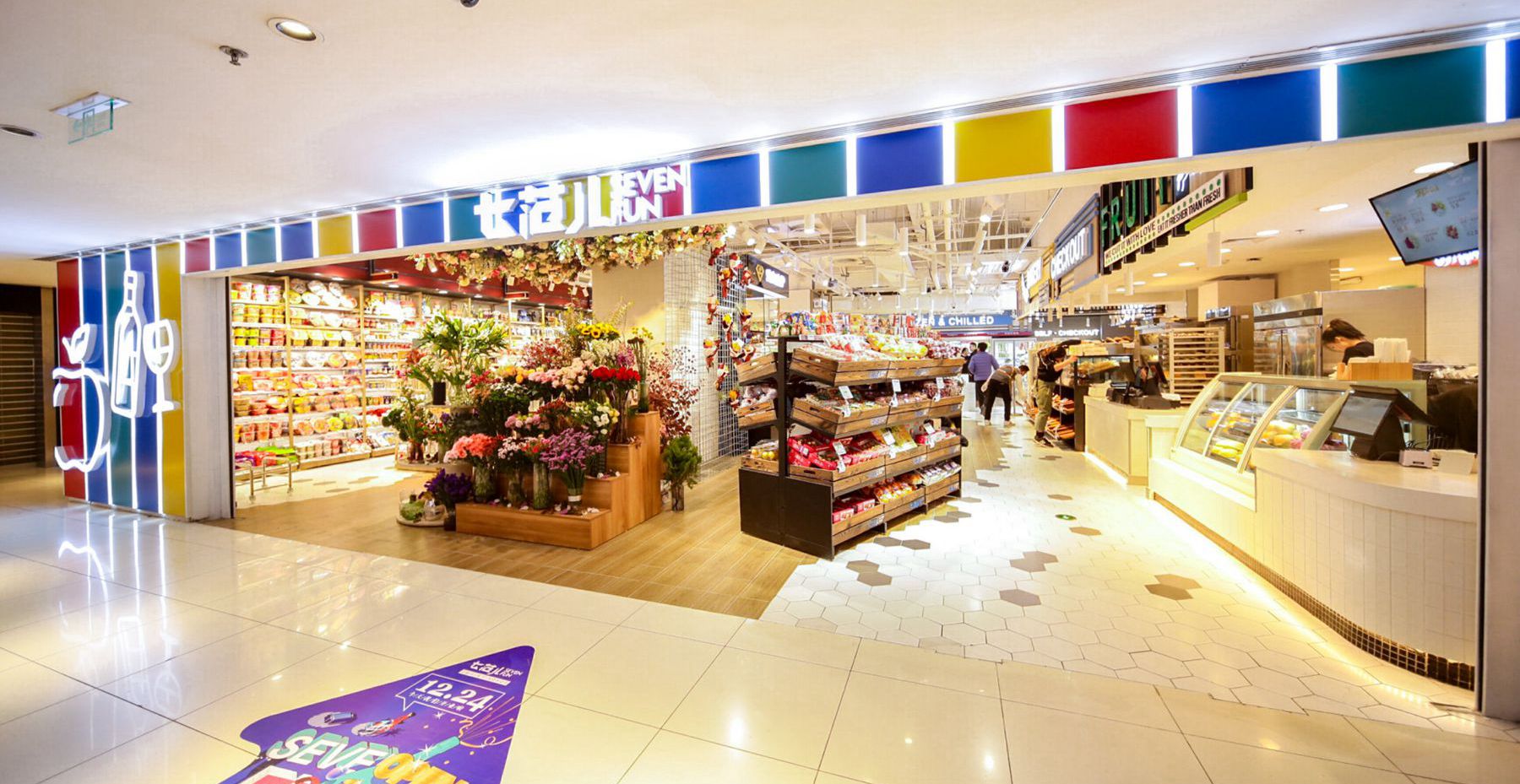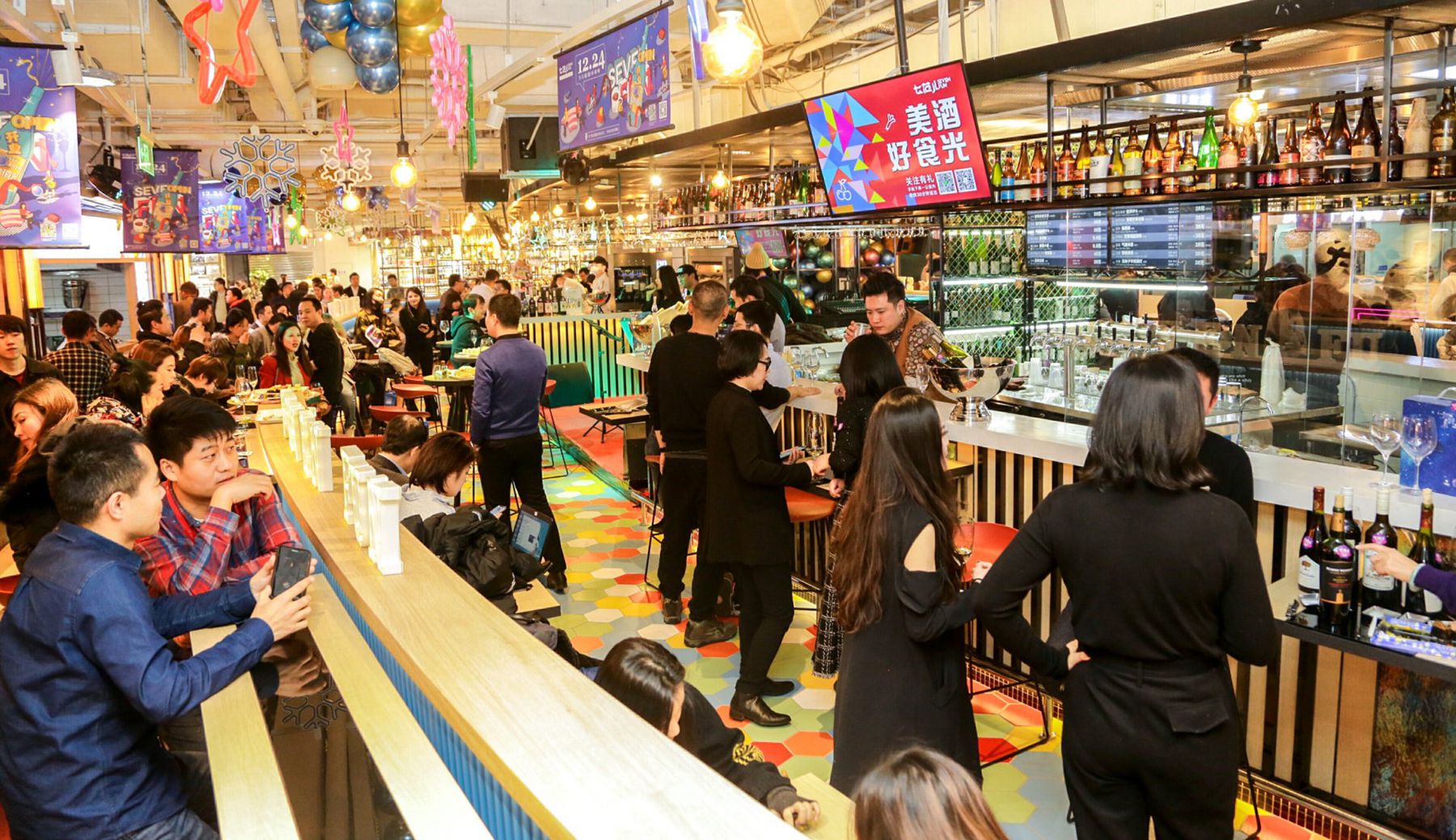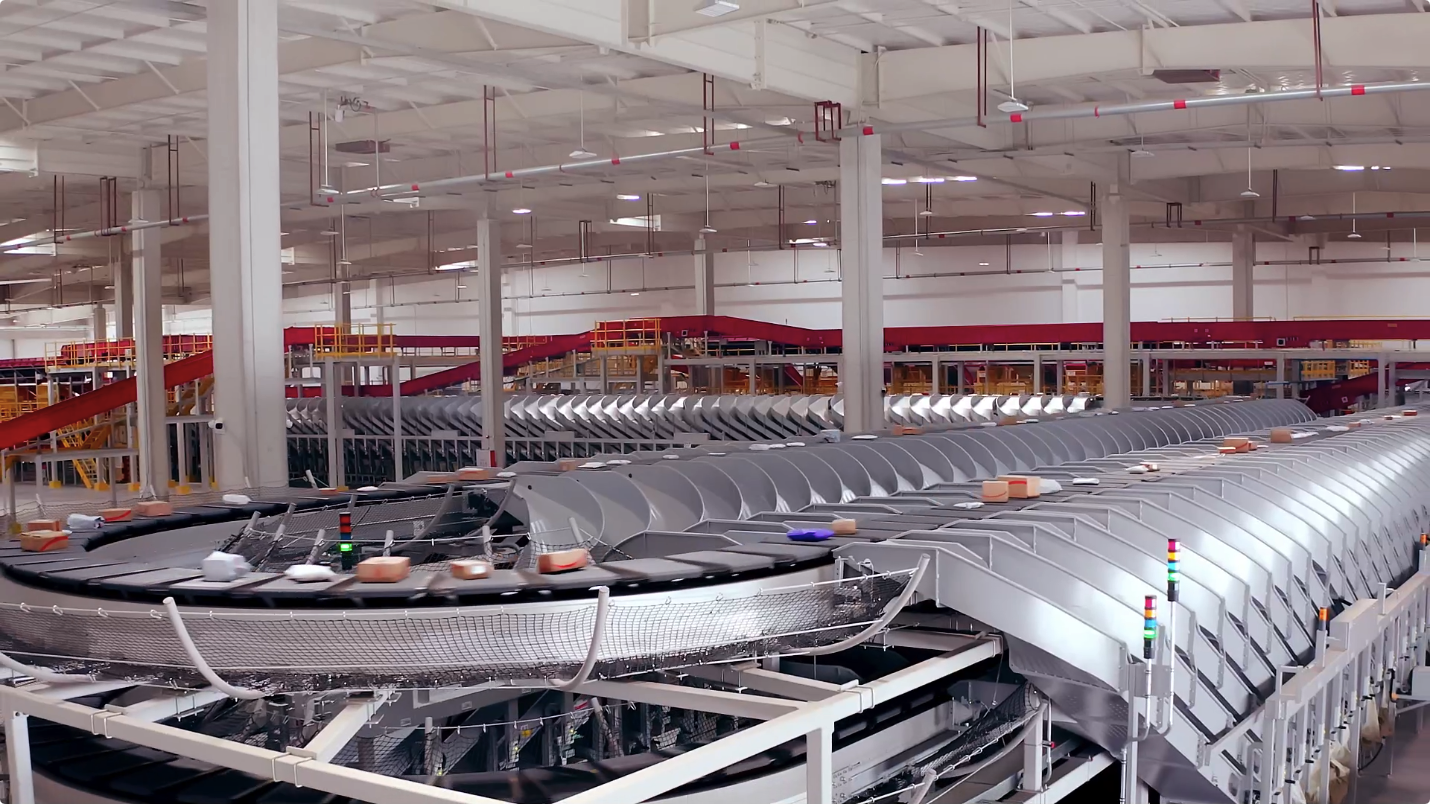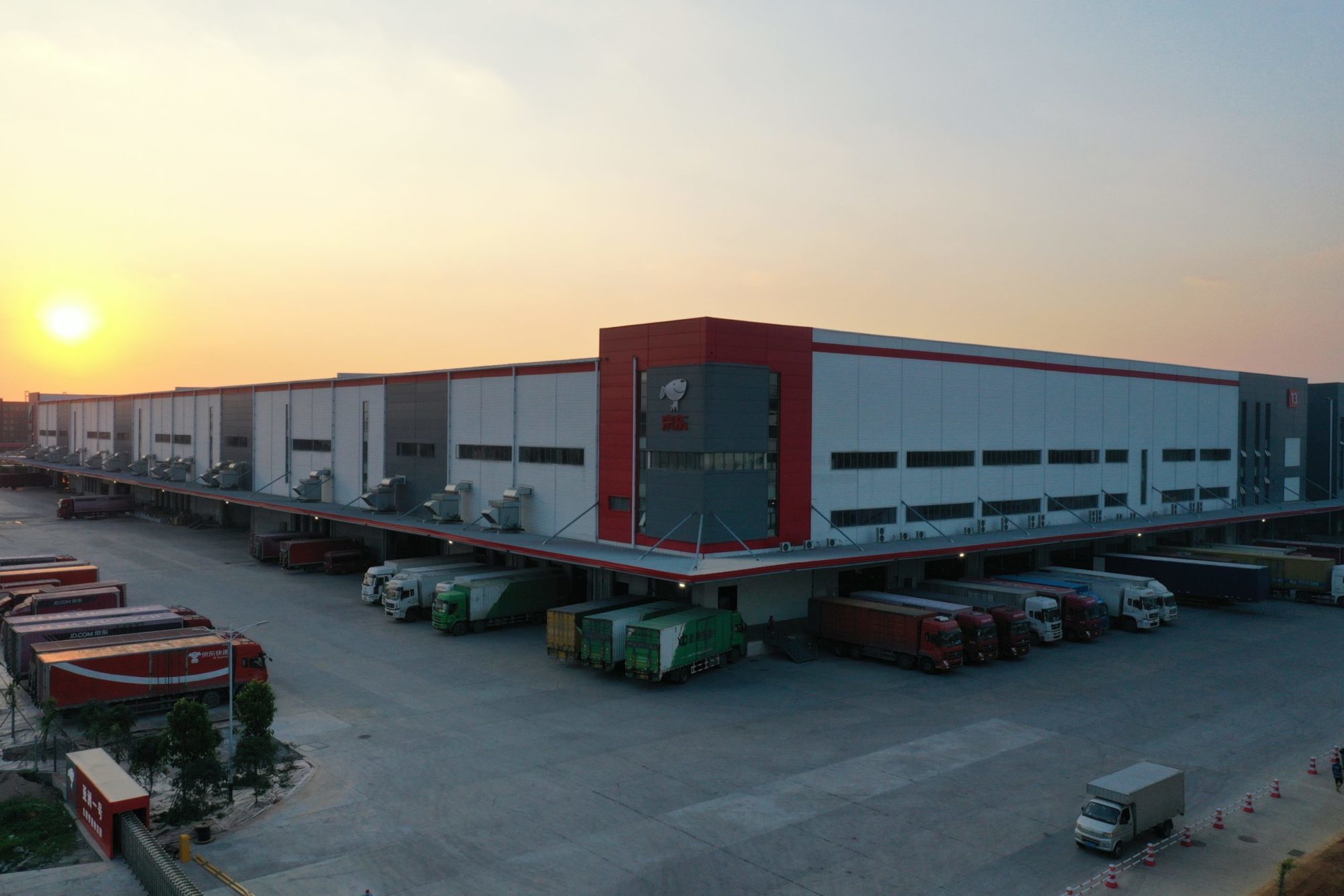by Ling Cao
Launched in December of last year, the logistics park in Dongguan, Guangdong province, is the largest-scale integrated smart fulfillment center in Asia. It covers the entire supply chain process from inbound, storage, packaging, and sorting, to outbound. The construction area of 500,000 square meters is twice the size of the Olympic stadium (“Bird’s Nest”) in Beijing. The height when combining all of the 78 automatic stackers is over 1,600 meters, and is equivalent to two Burj Khalifa Towers (world’s tallest building in Dubai).
It is called Asia No.1. JD has total of 25 such landmarks countrywide. JD is a technology and service company with supply chain as it core. Hence, what is the significance of building a gigantic warehouse in Dongguan?
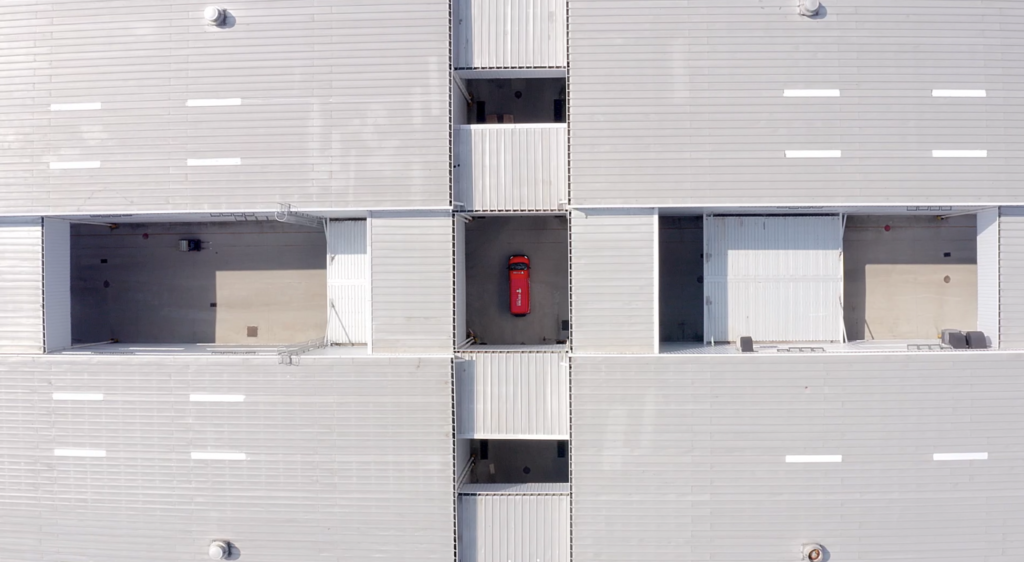
The Benefit
The benefit of the nationwide Asia No.1 logistics parks as a model is made clear during the sudden coronavirus outbreak. Leveraging JD’s smart warehousing system, similar to a planning central nervous system, scheduling and transportation between different warehouses, the logistics parks are operating normally to make sure JD can offer enough products for customers who want to get them online.
Given the nature of public road resources and accessibility for delivering daily necessities, epidemic prevention and medical supplies during the outbreak, the “central nervous system” rapidly reorganizes the logistics resources of the whole network. This includes new route planning to avoid goods having to be transferred via Wuhan and inventory forecasting to prepare enough stock ahead of time in warehouses.
Head of JD’s Asia No.1 logistics park, Guowei Xia, said, “We have built 25 highly automated Asia No.1 logistics parks in only five years. Asia No. 1 makes up the largest scale smart warehousing and logistics network in Asia’s e-commerce industry, and ensures we provide a high quality last mile delivery service experience to our customers, to promote global commerce and social sustainability.”
The park deploys automated facilities at a large scale, with JD’s self-developed warehousing software system, which leverages technologies such as algorithms to achieve comprehensive functions like scheduling, coordination, optimization and data monitoring, which can largely increase efficiency and accuracy.
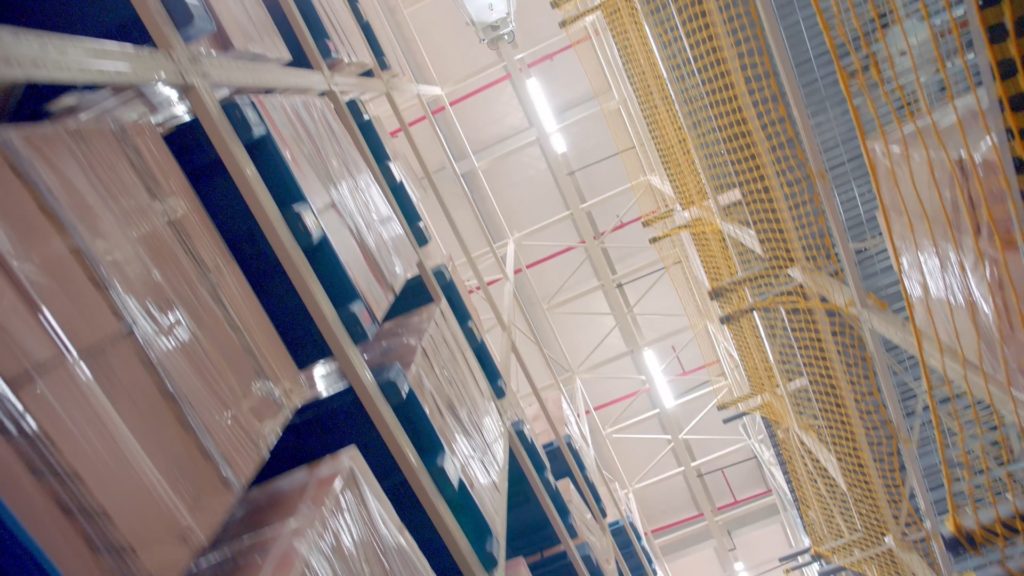
The facts
Here are some stunning facts about the logistics park at a glance:
- The 22 kilometer automatic sorting system is equivalent to the length of the main bridge of the Hong Kong-Zhuhai-Macao Bridge.
- More than 800 chutes accurately distribute parcels to different regions of the country.
- The automatic stereoscopic storage area can store over 20 million middle-sized parcels at the same time, equivalent to 399 trips around the earth when connecting all parcels’ length.
- It can handle 1.6 million orders per day.
The park is like a giant guarding the village of Machong in Dongguan, protecting the entire Greater Bay Area. Let’s take a look at how the different parts make up a cohesive whole.
The automatic sorting center
Previously, when a customer placed an order, JD’s system would pick up the order information and identify where and how to produce the order. Then the parcel would be picked up, packaged in a warehouse, and then sent to a sorting center to identify which region the order should be delivered to. The entire process was handled by humans. At the Dongguan Asia No.1 logistics park, the packages will be put into a sorting facility which is fully automated. The facility have 800 chutes, which refer to different regions, and when the package moves on the sorting facility, the bar code from the package will be scanned automatically. This signals directions in the same way as when someone drives a car on the road, with the package knowing which direction it should travel. An even larger challenge is that normally a facility can only sort small-sized packages, but JD’s facility in this park will chiefly sort medium-sized packages, with categories including small home appliances, kitchen ware, baby and maternal, paper towels, diapers, computer / office supplies and others.
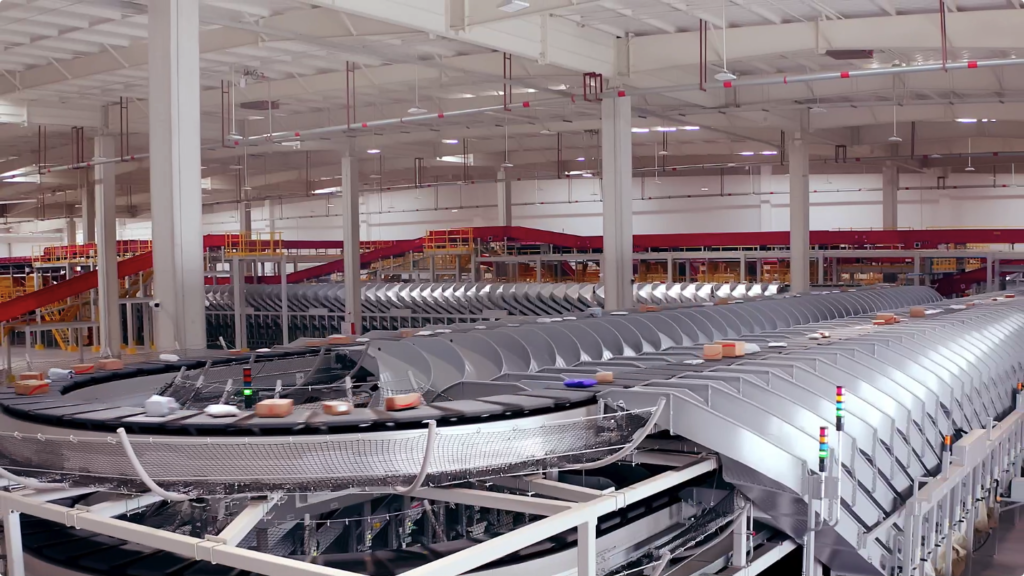
The facility also provides a significant stimulus to the local labor market.
Lijuan Liang, an employee at the Dongguan logistics park, is responsible for the overall scheduling at the sorting section. She’s a local resident of Machong who joined JD Logistics in 2015 and has worked in a range of positions since.
Liang shared, “The most significant thing about this park is that it largely reduces our work intensity, with the help of the automated sorting facility.” She added, “At first, many staff are like me, worried about whether machines will replace our jobs. But this concern has gradually disappeared as the company arranged training courses to help us learn how to work efficiently with machines, including how to operate and maintain them. We are delighted to refer machines as our ‘partners’. With these brand new experiences, we have made our work more valuable.”
“Machong was a relatively less developed in Dongguan, and there previously weren’t many large companies located here. E-commerce has driven the local economy and employment. Now, many restaurants and transportation companies have newly opened around the park. I’m happy to see the change.”
As a customer, Liang said, “Before 2014, when there was no smart sorting center, online shopping and delivery speed were not very good. The sorting center increased delivery speed so the deliveries could be completed the same or next day. Now, Dongguan Asia No.1 continues to improve the overall customer experience.”
The stereoscopic storage area
Many traditional warehouses occupy a significant amount of space and have limited room for expansion. JD has developed the AS/RS (Automated Storage and Retrieval System), which better utilizes shelving along a vertical axis to create a high-density stocking area which occupies only a small amount of floor space. The facility in Dongguan is one of the most efficient and large scale automated stereoscopic storage areas of its kind.
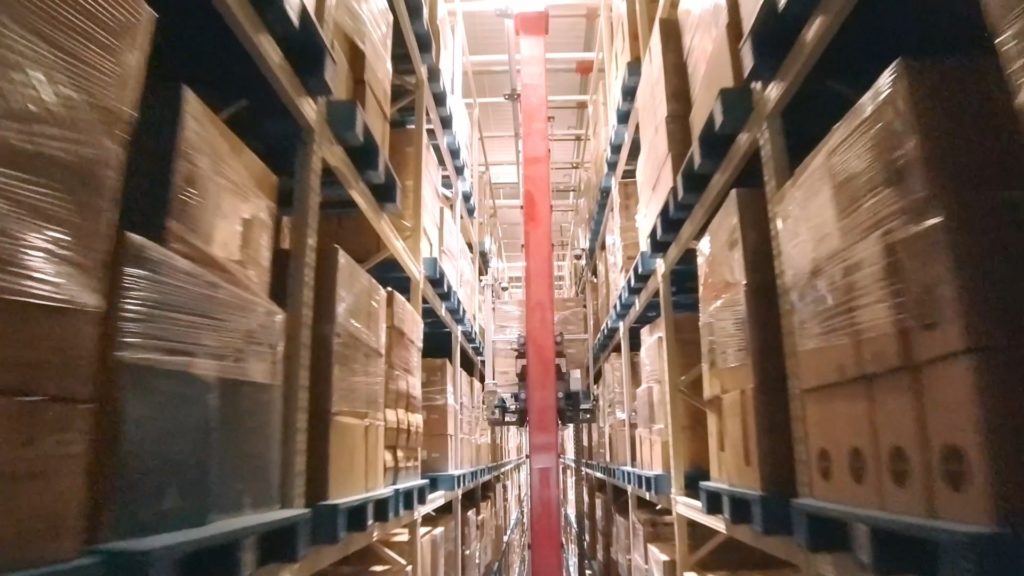
Junpeng Zhao is a project manager at Dongguan Asia No.1 logistics park. Coming from Henan province, he is responsible for installing all of the devices in the storage area as well as the sorting facility. He shared, “Since joining JD in 2013, I’ve witnessed our fast expansion in logistics. I’m so glad to see these facilities built from scratch, installed, and operated. We need to be very careful in order to make sure these devices are installed and the facilities are functioning well, and aim to avoid even 1cm of error.” Zhao said proudly, “I want to participate in more logistics automation programs at JD and become an expert in this area.”
All of these automated facilities are developed with a goal of ensuring maximum efficiency at a large scale.
Long-term mission
At this year’s JD Logistics annual meeting, Zhenhui Wang, CEO of JD Logistics said, “Eventually, our dream is to leverage technology to provide value to global clients and become the world’s leading supply chain and logistics provider.”
As a specific action to bring this dream to life, the Dongguan Asia No.1 logistics park, located on a key port, seeks to provide more value to the world. As Chinese consumers have more disposable income, they tend to buy high-quality and new products. Data from JD’s cross border business shows that imported products from the Greater Bay Area account for 40% of all imported products in China, leading to unique supply chain and logistics system demands. Apart from these smart logistics parks, JD Logistics has also built bonded warehouses in Guangzhou and Hong Kong, both of which are near the Dongguan park. These factors contribute to the park’s important role in driving JD’s international logistics business, leveraging its supply chain and technology capability to benefit Southeast Asia and expand to the rest of the world.
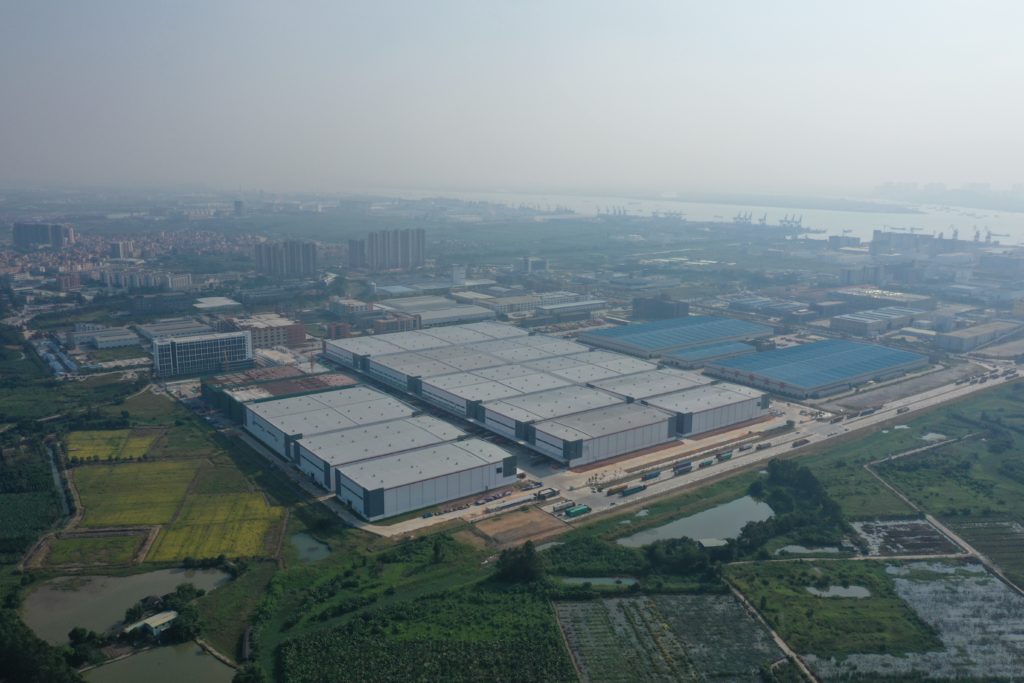
Background
E-commerce is still growing in China. According to official statistics, there were over 63 billion delivery orders made in 2019, the equivalent of 45 packages per person. The Guangdong-Hong Kong-Macao Greater Bay Area, which consists of Hong Kong, Macao, and nine cities in the Pearl River Delta region, is one of the rising economic belts in China demonstrating the strongest economic development, the highest consumption and the most active e-commerce market in China, with regional GDP accounting for over 12% of China’s total. While this creates exciting business opportunity, it also places significant demand on the supply chain capabilities of e-commerce companies who do business in the region.
As China’s largest retailer, JD started to build its own logistics network since 2007 for the simple reason that JD wanted to provide superior customer service, and there were no external partners who could help JD do this. The decision proved to be prescient. With years of experience in building its own infrastructure and based on a technology-driven strategy, now JD’s logistics network can cover 99% of China’s population, and 91% of orders can be achieved on the same or next day. No other e-commerce company in the world can match JD’s scale or level of service.
The Greater Bay Area, which is located in southern China, is one of JD’s most important areas for building the supply chain infrastructure, since many of the products the ecommerce giant sells originate from this region, including small and large home appliances, cell phones, computers, bathroom toilets, and others. The online shopping business is booming here, to say the least.
Dongguan, a city located in Guangdong province, southern China, which has an excellent transportation infrastructure, is one of China’s key cities for JD to develop its supply chain and logistics strategy. Around Dongguan, JD started to build a local fulfillment network long ago, expanding its warehouses to match the increasing orders. While the scale continued to grow, JD realized that the traditional approach of warehouse and delivery station expansion was simply not enough, and it needed to rely on technology to make the operations more efficient. In June 2014, JD built its first fully automated smart sorting center in Machong, Dongguan.
Apart from Dongguan’s Asia No.1 logistics park which mainly deals with medium-sized parcels, JD also launched two other Asia No.1 logistics parks in the Jiulong and Huangpu regions, focusing on handling small-sized parcels and bulky items. All of these parks – together with JD’s delivery stations which are near customers’ homes and office buildings – form an integrated fulfillment network which ensures an even smoother circulation for products, higher quality and faster speed of delivery, effectively promoting the development of China’s Greater Bay Area.
This large-scale business will eventually lead to an increasing amount of packages, and it’s critical to ensure sustainable development. JD.com has long been rigorously developing a green supply chain. In 2017, together with its partners, JD created a green development strategy, the “Green Stream Initiative”, aimed at reducing the environmental impact of logistics activities. From June 2017 to December 2019, JD reduced disposable packaging by nearly 30,000 tons and saved nearly one million tons of paper through the use of paperless systems in warehouses, lightweight packaging, and box recycling programs. As part of the program, JD incorporated green into all aspects of its operations for the Dongguan Asia No.1 logistics park, including a dark warehouse, lighter packaging, and new energy vehicles, which will both drive economic development and environmental protection together for Machong. Ultimately, it will help the town to transform from a small town with a poor infrastructure to one driven by technology and innovation, sustainably. The benefits will surely have a positive knock-on effect for Dongguan and the larger Greater Bay Area.
Download B-roll here: https://jdcorporateblog.com/gallery/
(ling.cao@jd.com)
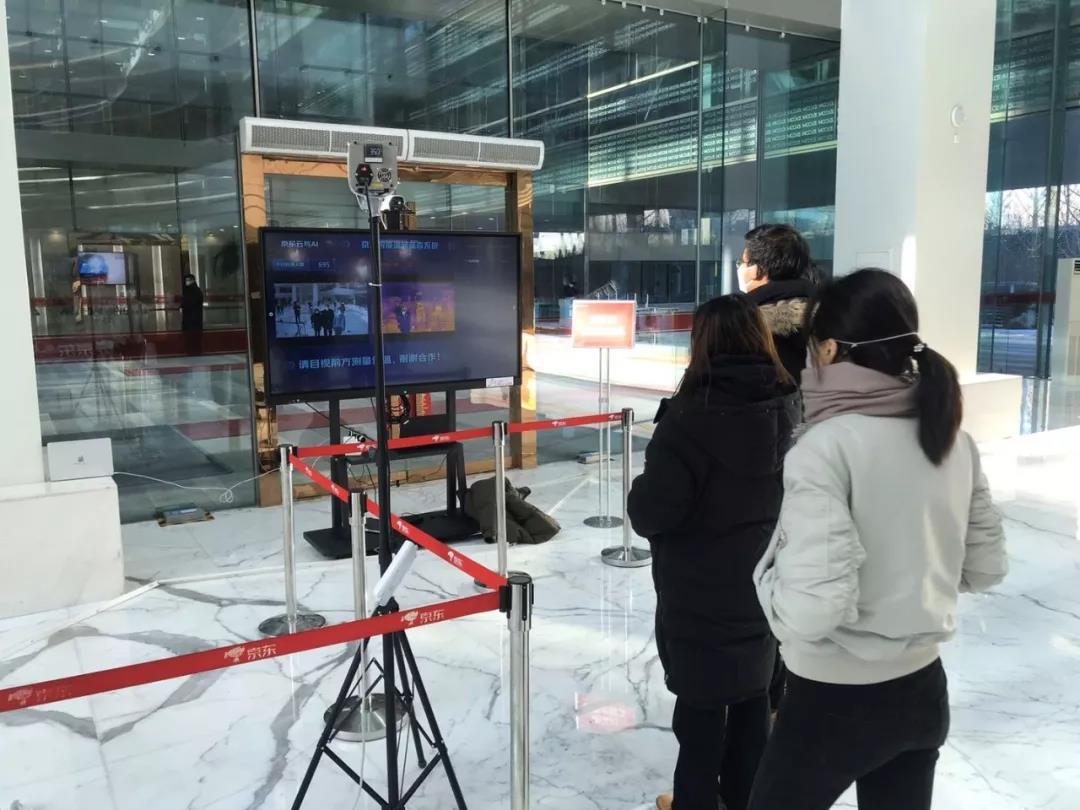 Smart Body Temperature Screening System Applied at JD.com HQ in Beijing, China
Smart Body Temperature Screening System Applied at JD.com HQ in Beijing, China